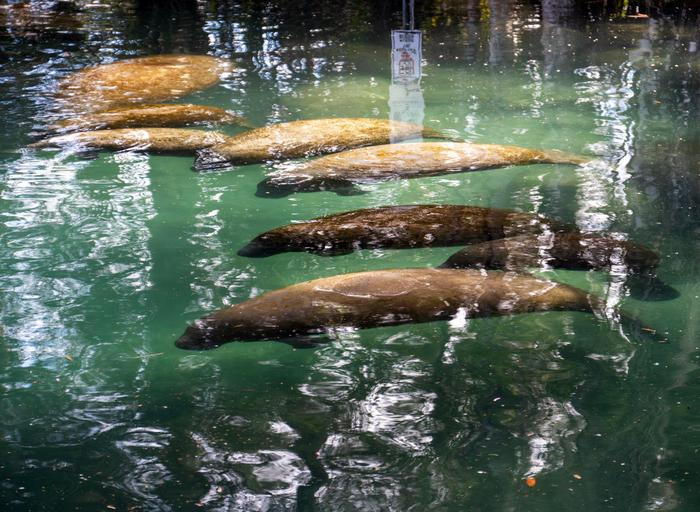Abu Dhabi, UAE, July 25, 2024: NYU Abu Dhabi (NYUAD) Associate Professor of Biology Shady Amin has received a grant of more than USD 500,000 from the National Science Foundation (NSF). He will lead a project that is aimed at elevating the understanding and awareness of the essential role played by diatoms, the tiny microalgae that can live in oceans or in symbiosis with endangered marine animal hosts like whales, dolphins, dugongs, and manatees and play a fundamental role in maintaining Earth’s delicate ecosystem.

Credit: Courtesy of Professor Gregory Courtney
Abu Dhabi, UAE, July 25, 2024: NYU Abu Dhabi (NYUAD) Associate Professor of Biology Shady Amin has received a grant of more than USD 500,000 from the National Science Foundation (NSF). He will lead a project that is aimed at elevating the understanding and awareness of the essential role played by diatoms, the tiny microalgae that can live in oceans or in symbiosis with endangered marine animal hosts like whales, dolphins, dugongs, and manatees and play a fundamental role in maintaining Earth’s delicate ecosystem.
Diatoms are microalgae that produce as much as a fifth of Earth’s oxygen from carbon dioxide through photosynthesis and support fisheries in coastal zones. One group of diatoms lives on the skin of marine animals and enables their survival by fighting off skin infections. These are unique from diatoms that live in seawater in that they largely cannot survive without their animal host. Because of this, these skin-dwelling diatoms are endangered like their hosts; if the hosts go extinct, the diversity of these diatoms – and their oxygen-producing capability – will also be lost.
In the NSF-funded project, titled “Standing on the shoulders of giants: Phylogeny, systematics, and adaptation of marine epizoic diatoms to endangered megafaunal hosts,” Professor Amin’s team will sample the skin of marine animals in various facilities in Florida, Texas, and Abu Dhabi to catalog the diversity of the diatoms they host. In doing so, they will seek to better understand how these microalgae survive on their host’s skin, how they move from one host to another and why, and how they benefit the host.
As part of this research effort, Professor Amin and his team will collaborate with the Natural History Museum Abu Dhabi and the Department of Culture and Tourism (DCT) – Abu Dhabi to sample the skin of dugongs. Abu Dhabi has the second largest population of these marine mammals in the world. The skin of this close relative of the manatee has never been sampled, so gaining an understanding of its skin microbiome – including the presence of diatoms – will be an important advancement.
Finally, Professor Amin and his research team will collaborate with NYUAD Film Studies Professor and the Director of the Lab of Experimental Cinema Alexis Gambis to produce a three-part film series about diatoms and their importance to our planet’s ecosystem.
“Most people are unaware of the fascinating and truly essential role diatoms play in sustaining life on our planet,” said Professor Amin, who is also NYU Global Network Associate Professor of Biology and Principal Investigator at NYUAD’s Marine Microbiomics Lab. “Through this exciting project, we aim to not only elevate our understanding of how diatoms help protect some of Earth’s most endangered animals but also educate the public about how these tiny microalgae literally make Earth habitable.”
Professor Amin is a biological oceanographer and marine chemist who uses biological and chemical tools to address fundamental questions about the role microbiomes play in the adaptation and evolution of marine hosts, such as microalgae, corals, and cetaceans. In addition, Professor Amin is involved in a consortium of NYU PIs who are establishing an environmental monitoring system across the Abu Dhabi coast to collect data that will help prediction of harmful algal blooms and other environmental phenomena.
ENDS
About NYU Abu Dhabi
www.nyuad.nyu.edu
NYU Abu Dhabi is the first comprehensive liberal arts and research campus in the Middle East to be operated abroad by a major American research university. Times Higher Education ranks NYU among the top 30 universities in the world, making NYU Abu Dhabi the highest-ranked university in the UAE and MENA region. NYU Abu Dhabi has integrated a highly selective undergraduate curriculum across the disciplines with a world center for advanced research and scholarship. The university enables its students in the sciences, engineering, social sciences, humanities, and arts to succeed in an increasingly interdependent world and advance cooperation and progress on humanity’s shared challenges. NYU Abu Dhabi’s high-achieving students have come from over 120 countries and speak over 100 languages. Together, NYU’s campuses in New York, Abu Dhabi, and Shanghai form the backbone of a unique global university, giving faculty and students opportunities to experience varied learning environments and immersion in other cultures at one or more of the numerous study-abroad sites NYU maintains on six continents.




